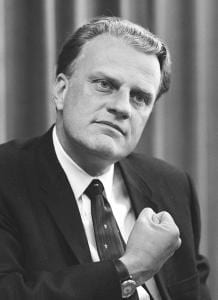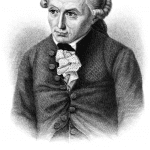
It is here and He is risen. Kanye West’s new album, Jesus is King, hit shelves (or really Spotify) a few short days ago. Never mind that the media has no idea what to do with it (Slate called the lyrics “weak”; while AV Club thought it proper to tell us what the Church of Satan thinks of Yeezy—go figure). Suspicions aside, some see this, along with Justin Bieber’s notorious conversion, as last gasps, even renewals, of the Fourth Great Awakening (better known as “contemporary evangelicalism”). If they are “last gasps,” the implication is that American religion is hurting—an idea born out by recent data about American Hispanics and their denominational affiliations, among other things. Thus many others would argue that this is the golden age of the “nones,” that religion is on the way out, that unbelief is the future.
These various positions, I think, get it wrong. I like Kanye’s new album, and his “conservative evangelical” bona fides are truly something to behold, but one album and a teen heartthrob do not a revival make. In a similar way, when people talk about this as the age of unbelief, I have to wonder if they can recall where we were 20 years ago, when trench coat-wearing magicians prowled the streets, impaling women on fences to demonstrate the idiocy of faith in God. Penn and Teller, Criss Angel, Derren Brown—all famous around the same time. Never mind, of course, the “New Atheists”—Hitchens, Dawkins, Dennett, inter alia—who seem to lack anything approaching cultural cache these days. Atheism was cool when Gen X was settling into hegemony, but now? Now, not so much.
We are in the midst of a revival of spirituality, if not of religion. Astrology is everywhere. Anecdotally, I’ve yet to meet anyone under 35 who is some sort of staunch atheist (though I imagine they exist. I’d guess if they do, that they’re from rural or semi-rural areas, where atheism might seem tenable as a response to “fundamentalism”). I’d wager that most of those who would have been attracted to New Atheism a decade or two ago are now largely into either Jordan Peterson or Alt-Right politics. The former is explicitly interested in the spiritual side of human life (going so far as to deploy the psychology of Carl Jung). The latter, whatever its problems (and they are myriad) is not some logical correlate of atheism (in fact, much the opposite. Anders Breivik self-professedly has no faith, yet calls himself a “cultural Christian” Agin, go figure). Atheism has come and gone (at least for now). What comes after is, however, a bit more complicated.
What does it mean to be a “none” in our age?
Seventy-two percent of nones profess belief in some sort of higher power – even if that higher power isn’t necessarily a traditional, major faith deity. A more recent Pew poll found that 62 percent believe in one or more “New Age” principles, including the efficacy of psychics or astrology.
The millennial nones, too, have pioneered other forms of spirituality. Harvard Divinity School researchers Casper ter Kuile and Angie Thomas have identified “cult” fitness programs like CrossFit and SoulCycle as serving as a form of church for regular participants. Likewise, intense internet fandom communities, say a group of scholars from the University of Leicester in the U.K., foster community through valued texts — from Harry Potter to Buffy the Vampire Slayer — and shared meaning, like any religious group.
As ter Kuile and Thomas have written, this doesn’t necessarily mean people are simply replacing religion with secular equivalents. Rather, they argue that through a kind of religious “unbundling” elements of existing spiritual and religious traditions are increasingly divorced from their original contexts.
More and more practitioners are “mixing and matching,” finding community in CrossFit while developing a spiritual practice in home yoga or meditation. A Jewish person may engage in divination through Tarot cards. Religious life isn’t ending; it’s becoming increasingly diffuse. (“Why We Should Stop Using the Term Religious ‘Nones’)













